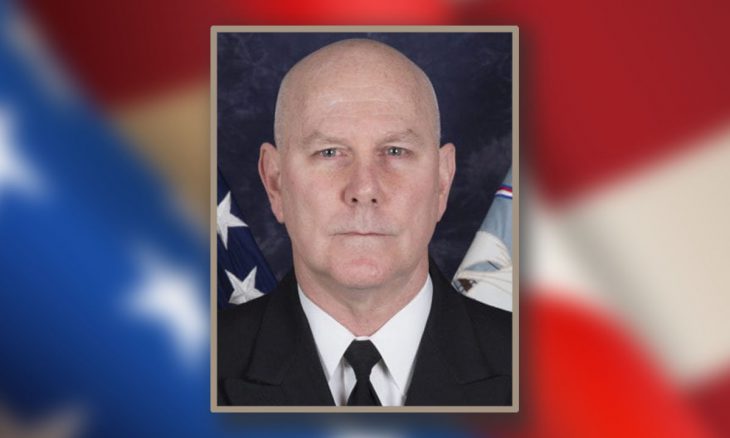Admiral Christopher Grady
Vice Chairman, Joint Chiefs of Staff
Christopher Wilson Grady was born in November 1962 in Portsmouth, Virginia. He is a graduate of the University of Notre Dame and was commissioned into the Navy via the Naval Reserve Officers Training Corps program. He is also a graduate of Georgetown University, where he earned an M.A. in International Security Studies while concurrently participating as a Fellow in Foreign Service at the Edmund A. Walsh School of Foreign Service. He has received other education through the military, including receiving an MS in National Security Affairs from the Naval War College.
His service at sea has included as a combat information officer, anti-submarine warfare officer, weapons control officer, combat systems officer, and as a commanding officer of Mine Counter Measure Rotational Crew Echo. He deployed to the Persian Gulf in command of USS Ardent, then commanded USS Cole, deploying as part of NATO’s Standing Naval Forces Mediterranean. He commanded a destroyer squadron in the Pacific Gulf and was then sea commander for the Theodore Roosevelt Carrier Strike Group in support of Operations Enduring Freedom and Iraqi Freedom. He was commander of a Pacific Fleet Carrier Strike Group deploying in support of Operation Inherent Resolve.
He was nominated by President Donald Trump for appointment to the rank of admiral and assignment as commander of United States Fleet Forces Command. He was confirmed by the Senate and assumed command in May 2018. He was nominated in November 2021 to be the Vice Chairman of the Joint Chiefs of Staff, confirmed by the Senate, and assumed his position in December 2021.
In the News…
Eliminating risk aversion is a key to weapons development according to the newly-seated Vice Chairman of the Joint Chiefs of Staff, Admiral Christopher Grady.
“That risk aversion was born of a period perhaps in the late 90s, early 90s, when we didn’t have any proper competitors. That’s not the case now. We have to be able to fail, to learn faster. Failure doesn’t mean malfeasance or laziness, or any of that, but it means learning. And going faster,” Admiral Grady told the Senate Armed Services Committee.
The vice chairman oversees the Joint Requirement Oversight Council (JROC), the Pentagon group that gives the go-ahead to develop new weapons systems for the services.
“It is perhaps one of the most important things that happens in the Pentagon. And building on the momentum set by my predecessors… I think that the key to the JROC is that it is threat and risk-based.“
“If we go from a threat-based perspective to close those gaps, and then we work to go faster, I think we’ll achieve the true potential of the JROC,” he said.
“I think one of the challenges, though, is that we’re risk averse,” he added. “We need to consider whether to adopt a strategy, if you will, that will allow to test a little and learn a lot.”









